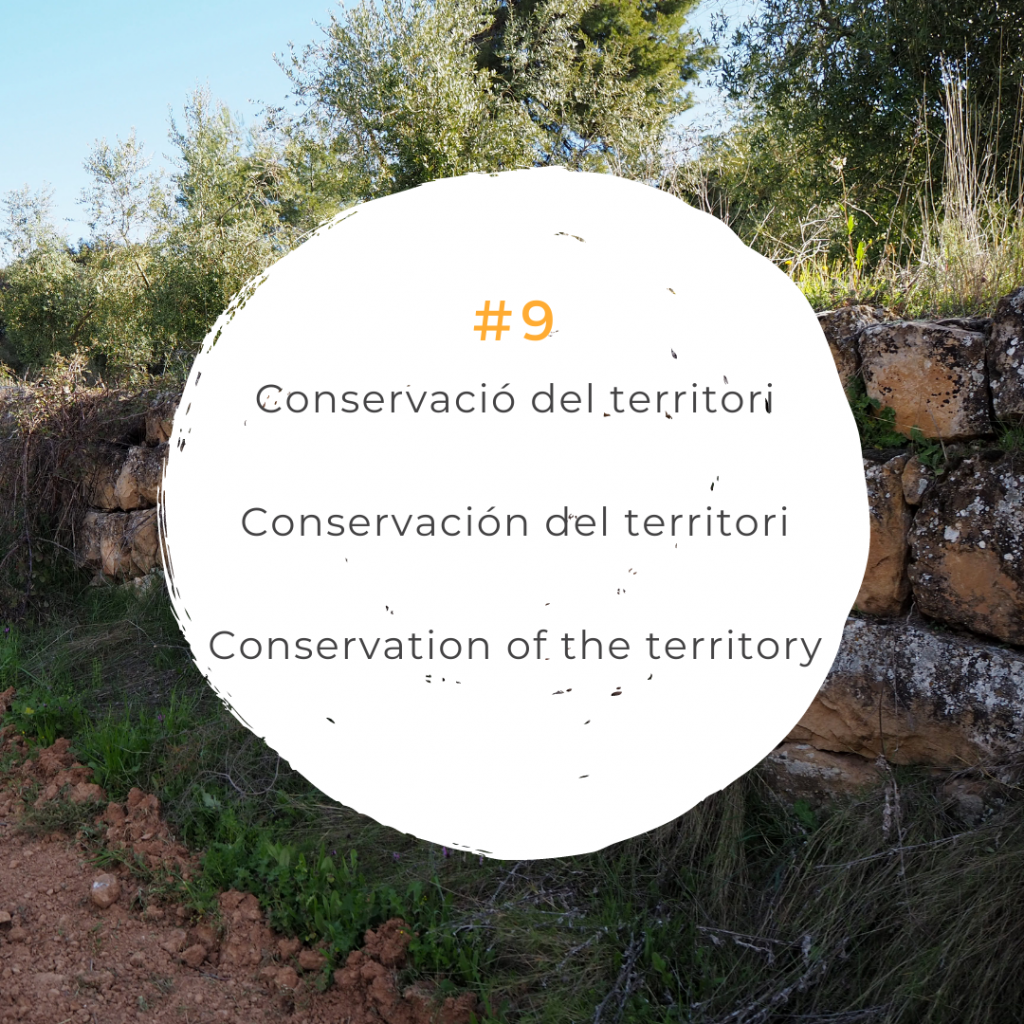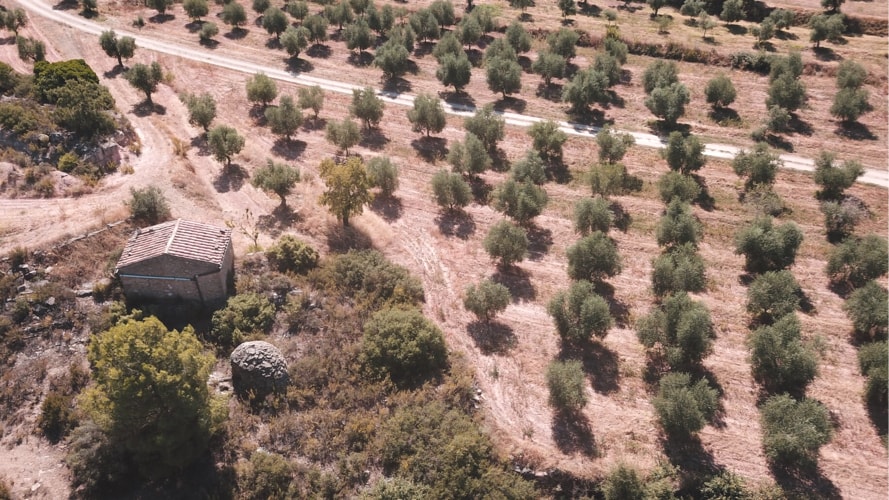Ecology / conservation of the territory.
The olive tree has a great landscape and ecological value for the territories where it is cultivated.
The traditional cultivation of the olive tree, in organic or respectful agriculture, consumes few natural resources.
Maintaining the rural architecture, especially the stone margins, favors being able to take advantage of the rainfall, which is usually scarce. It also prevents and slows down sun erosion
Organic farming, or the non-use of pesticides and chemical fertilizers, keeps aquifers clean and healthy.
Preserving a rich ecosystem of plant and wildlife is a guarantee of pest prevention.
“The cultivation of the olive tree goes beyond its strictly productive function and its multi-functionality is evident.
At the natural level for its biodiversity (fauna and flora),
at the cultural level for the agricultural landscape and a long and extensive cultural heritage,
and at the social level for the group of people who work these crops, maintain the agricultural landscape, and live in the villages, enabling territorial rebalancing. “
Interesting articles



